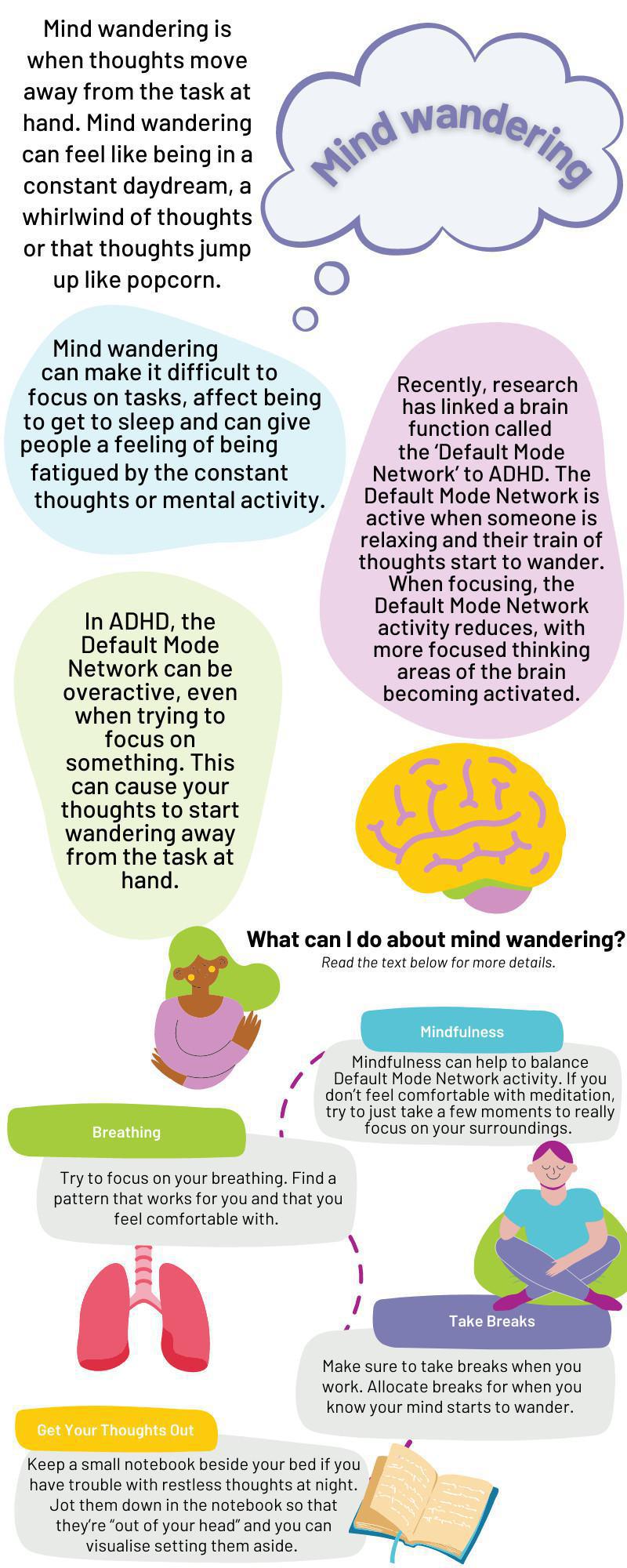Mind Wandering
- Mind wandering is when thoughts move away from the task at hand. Mind wandering can feel like being in a constant daydream, a whirlwind of thoughts or that thoughts jump up like popcorn.
- Mind wandering can make it difficult to focus on tasks, affect being able to get to sleep and can give people a feeling of being fatigued by the constant thoughts or mental activity.
- Recently, research has linked a brain function called the ‘Default Mode Network’ to ADHD. The Default Mode Network is active when someone is relaxing and their train of thoughts start to wander. When focusing, the Default Mode Network activity reduces, with more focused thinking areas of the brain becoming activated.
- In ADHD, the Default Mode Network can be overactive, even when trying to focus on something. This can cause your thoughts to start wandering away from the task at hand.
What can I do about mind wandering?
- Mindfulness can help to balance Default Mode Network activity. If you don’t feel comfortable with meditation, try to just take a few moments to really focus on your surroundings. Focus on the feeling of the chair you’re sitting on, any smells around you or if you’re having a bite to eat really think about the flavours and textures. Taking a minute to become aware of the present moment is a way to practice mindfulness without formal meditation. You can also try practicing with your mindful breaks.
- Try to focus on your breathing. Find a pattern that works for you and that you feel comfortable with. For example, try taking a slow breath through your nose and letting your abdomen rise and inflate like a balloon for a count of 4. Hold your breath for a count of 7 (or shorter if you need to!). Breathe out slowly through pursed lips, like you’re blowing bubbles, for the count of 8. Repeat this cycle a few times but don’t do it if you feel dizzy or faint.
- Make sure to take breaks when you work. Take care of yourself and your mind by taking a structured and scheduled break after a certain period of time, especially if the task is mundane or tedious. Allocate breaks for when you know your mind starts to wander. For example, if your mind starts to wander typically after 30 minutes, take a break at 25 (and reward yourself for your hard work too!).
- Keep a small notebook beside your bed if you have trouble with restless thoughts at night. Jot them down in the notebook so that they’re “out of your head” and you can visualise setting them aside. Try not to use your phone for this, as the light of the screen will keep you awake. Reading a book at night is also helpful, as you can concentrate on something in particular as you get sleepy. Read our other tips for improving sleep by clicking on this link here.


